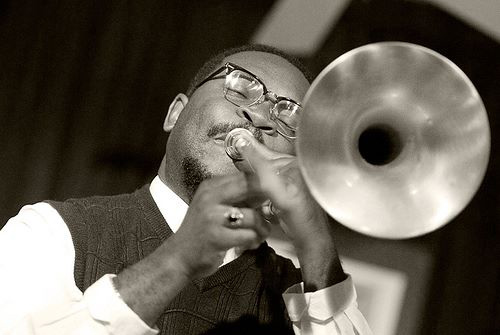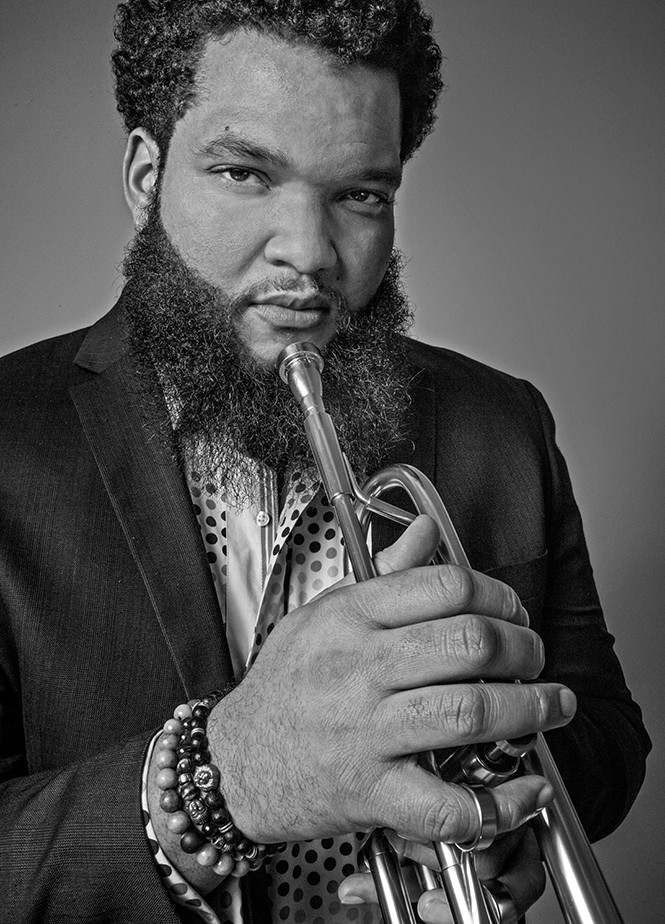 |
| Vincent Chandler |
If you’ve caught any of the trombonist Vincent
Chandler’s concerts over the years, you may know they are mainly structured as
a showcase for the musicians in his bands. He’s always been—as long as I’ve
followed his career—a selfless leader and a generous jazz educator to the many established
musicians and student musicians who’ve benefited from his passion for jazz. So,
Saturday evening at the Charles H. Wright Museum of African-American History it
was a pleasure to witness him take time to give himself a humungous shout-out,
which he did eloquently and humorously before performing an hour-plus set of
original music with six of Detroit's best jazz musicians.
In his group were pianist Michael Malis, drummer Sean Dobbins, bassist Josef
Deas, trumpeter Dwight Adams, and saxophonists De’Sean Jones and Rafael Statin.
That’s a helluva talent pool occupying the bandstand. Before they dove
fearlessly into Chandler’s multi-layered tunes, he shared with the
near-capacity audience some pivotal chunks of his evolution as a musician, an educator,
a son, and a husband. Don’t get it twisted, he wasn’t bragging about his
accomplishments, which are considerable. The self-acknowledgment was
well-deserved and meaningful. After he finished, his group torched the museum
with Minor Blues for Ed Love, So What Now, Do as I Say Not as I Do, and The
Essence of a Remorseful Plea. And when the group needed a minute to allow
their instruments to cool off after all that swinging. Chandler's wife, an
accomplished opera vocalist, floored the audience with her rendering of Duke Ellington’s
Come Sunday. After the audience regained its
composure, the musicians returned to high-swing mode and didn’t let up.
The pure reverence Chandler has for his bandmates was evident on the opening
number. The solos appeared to be designed to give the audience a taste of each
musician’s genius. Statin’s solo was the most memorable. He damn near blew the
light fixtures off the ceiling. He’s reached new plateaus in his playing, and
he’s finally purged the Kenny Garrett influence from his system. Dobbins and
Deas were fabulous when the zoom lens was pointed on them. They probably
understand Chandler’s musical and compositional leanings more than the others
because they played and grew with him for years in the hot jazz quintet Urban
Transport. There were more concert highlights than there’s room here to discuss.
However, the most poignant time of the concert occurred when the group poured
their souls into, I Can’t Breathe, Chandler’s artistic statement to the
tragic end of Eric Gardner’s life. Chandler played brilliantly the entire
concert. As a trombonist, his streetwise tone and aggressive phrasing beg
comparison to Curtis Fuller. The concert was billed it as the Vincent Chandler
Experience, and Chandler made sure it lived up to that.

